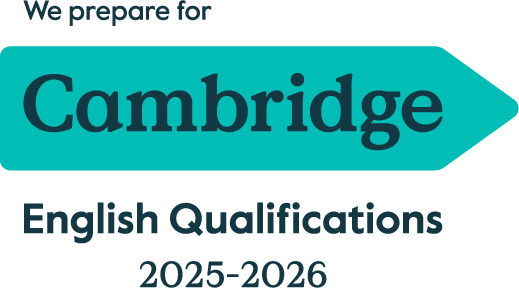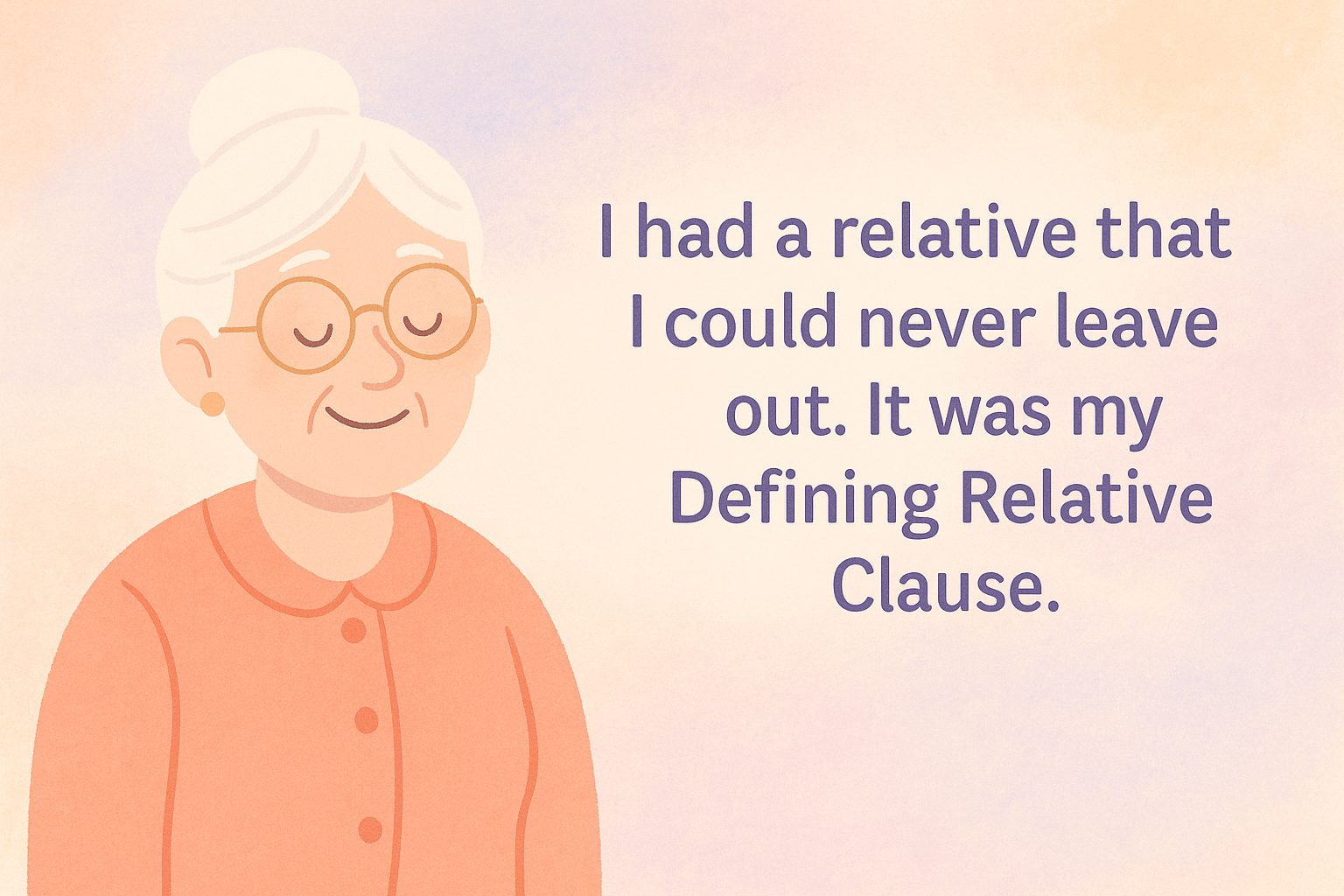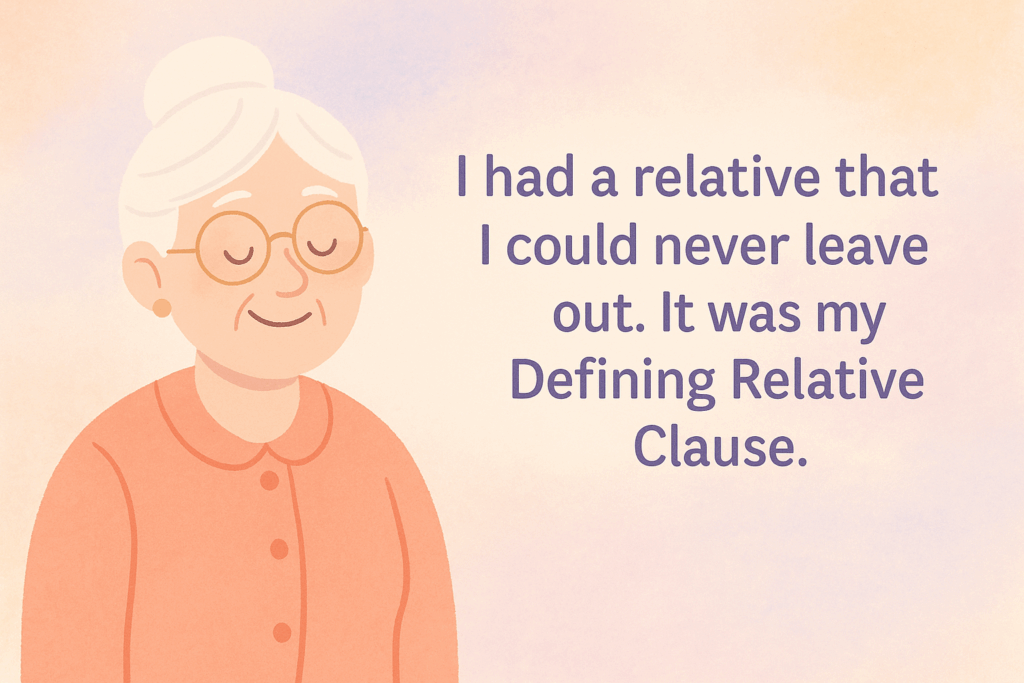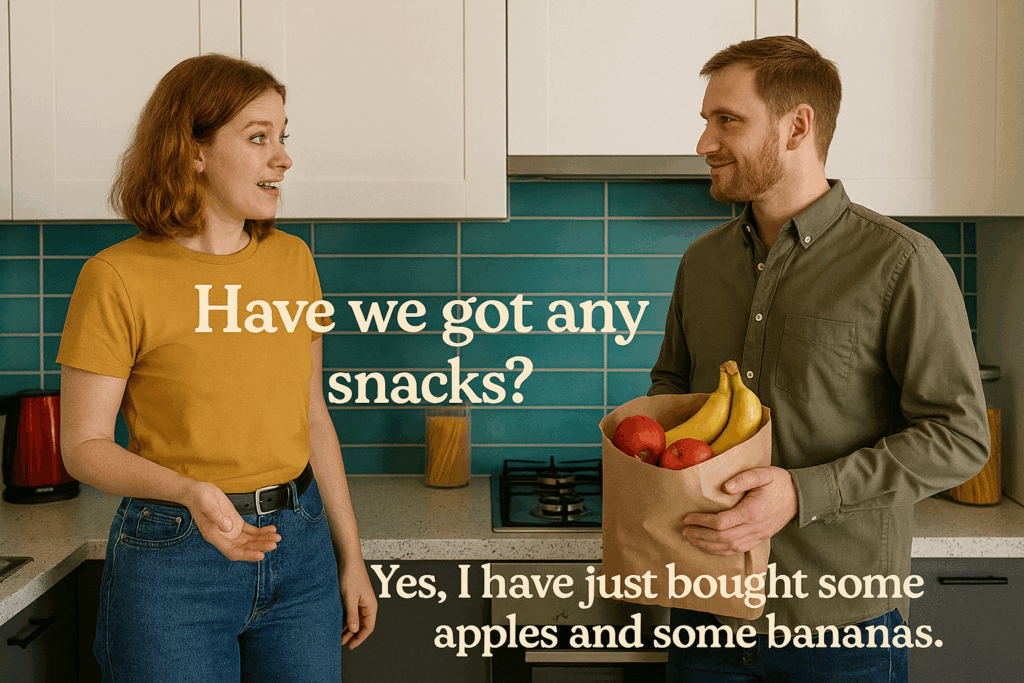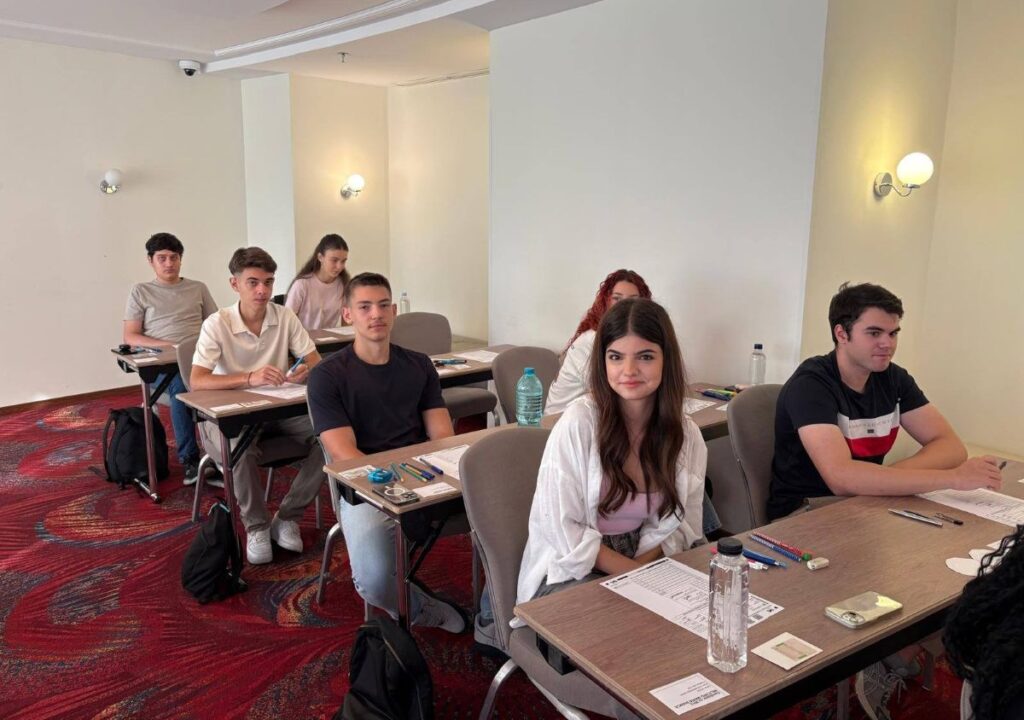Ce sunt propozițiile subordonate sau subordinate clauses
O propoziție subordonată (subordinate clause / dependent clause) este o propoziție care nu poate sta singură, deoarece nu exprimă o idee completă. Ea depinde de o propoziție principală (independent clause). În engleză există trei categorii mari de propoziții subordonate: substantivale, adjectivale și adverbiale.1. Subordonatele substantivale (Noun Clauses)
Acestea acționează ca un substantiv: pot avea rolul de subiect, complement direct, complement prepozițional sau predicativ. Conectorii cei mai folosiți sunt that, if, whether, wh- words: what, where, who, why, how etc.Exemple de propoziții subordonate substantivale în engleză
| Conector | Tip | Exemplu Amuzant |
|---|---|---|
| that | Subordonată factuală | I’m convinced that my coffee mug disappears on purpose every Monday. |
| if | Întrebare indirectă | I wonder if my cat pays rent in emotional support or just vibes. |
| whether | Întrebare indirectă | I can’t decide whether I should clean my room or simply move to a new one. |
| what | wh- word | I don’t know what my keyboard wants from me, but it keeps typing double letters. |
| where | wh- word | Tell me where my left sock goes every time—it’s obviously on vacation. |
| who | wh- word | I’m trying to figure out who keeps eating my snacks… probably me, but in denial. |
| why | wh- word | No one understands why my phone battery drops 20% just by waking up. |
| how | wh- word | Explain how I spent 3 hours “tidying up” and made the room messier. |
2. Subordonatele adjectivale (Adjective / Relative Clauses)
Descriu un substantiv (de aici și numele, deoarece se comportă ca un adjectiv) și încep de obicei cu un pronume relativ. Există două tipuri de relative clauses:
a) Defining relative clauses (esențiale)
Cele două propoziții, principală și subordonată, se îmbină fără virgulă. Informația adusă de subordonată (modificarea asupra substantivului) este esențială.
- The woman who lives next door is a doctor.
b) Non-defining relative clauses (neesențiale)
Aici, cele două propoziții se îmbină folosind virgula; informația furnizată de subordonată e suplimentară (se poate și fără ea).
- My brother, who lives in Canada, is visiting soon.
Exemple de propoziții subordonate adjectivale în engleză
| Pronume | Exemplu |
|---|---|
| who | The cat who thinks he’s my boss has just scheduled my nap for 3 PM. |
| whom | My friend, whom I once trusted with my snacks, ate them all before I arrived. |
| whose | I met a dog whose TikTok account has more followers than I do. |
| which | I bought a smart fridge which sends me passive-aggressive reminders when I eat too much cheese. |
| that | The alarm clock that screams like a possessed rooster is the reason I wake up angry. |
| where | This is the café where the barista spells my name differently every day. |
| when | It was the moment when I realized my printer only jams during deadlines. |
| why | I’ll never understand the reason why my plants die even though I talk to them nicely. |

Subordonatele adverbiale (Adverbial Clauses)
Aceste subordonate în engleză indică diferite tipuri de circumstanțe: timp, cauză, concesie, condiție, scop, rezultat, modul etc. Propoziția subordonată funcționează ca un complement circumnstanțial. Poți pune subordonata înainte sau după propoziția principală. Regulă importantă: dacă subordonata apare la începutul propoziției, se pune virgulă.
Exemple de propoziții subordonate adverbiale în engleză
Am grupat mai jos o listă de conectori utilizați mai frecvent, după funcție (ce tip de subordonată introduc):
| Tip Subordonată | Conectori | Exemplu Amuzant |
|---|---|---|
| Timp (Time) | when, while, before, after, as soon as | Call me when you arrive, so I know you didn’t get lost in the supermarket again. |
| Cauză (Reason) | because, since, as | I stayed home because my alarm clock attacked me emotionally at 6 AM. |
| Concesie (Concession) | although, though, even though | Although it was raining, we went out—my dog said it was “now or never.” |
| Condiție (Condition) | if, unless, provided that, as long as | If you study, you’ll pass—unless your brain decides to take a nap mid-exam. |
| Scop (Purpose) | so that, in order that | I whispered so that I wouldn’t wake the baby… or summon the chaos demon inside him. |
| Rezultat (Result) | so…that, such…that | He was so tired that he fell asleep while scrolling… and liked a 7-year-old photo. |
| Mod (Manner) | as, the way | Do it the way I showed you—not the way YouTube promised works “100% of the time.” |
Exerciții cu propoziții subordonate în engleză
📘 1 — Parafrazează propozițiile folosind cuvintele date:
(Exersează toate cele trei tipuri de subordonate)
Model:
My brother lives in Spain. I miss him a lot.
→ I miss my brother who lives in Spain.
- John didn’t call me. That surprised me. (that)
- I don’t know the reason. She left earlier. (why)
- She wants to know. Will the concert start on time? (whether)
- The man is my neighbor. He fixed my bike. (who)
- He didn’t come to the meeting. That disappointed the team. (that)
- The restaurant is closed. We wanted to eat there. (where)
- I can’t understand it. He wakes up at 5 AM willingly. (how)
- She will join us. It depends on the weather. (if)
- The woman is very friendly. You met her yesterday. (whom)
- I forgot something important. It bothers me now. (what)
Arată răspunsurile
- It surprised me that John didn’t call me.
- I don’t know why she left earlier.
- She wants to know whether the concert will start on time.
- The man who fixed my bike is my neighbor.
- The team was disappointed that he didn’t come to the meeting.
- The restaurant where we wanted to eat is closed.
- I can’t understand how he wakes up at 5 AM willingly.
- She will join us if the weather is good.
- The woman whom (that) you met yesterday is very friendly.
- I forgot what bothers me now.
📘2 — Completează propozițiile cu conectorul potrivit:
(Exersează conectori pentru subordonate adverbiale: time, reason, concession, condition etc.)
Model: ___ it stops raining, we can go outside.
→ When it stops raining, we can go outside.
- I’ll help you ____ you ask nicely.
- She kept singing ____ everyone begged her to stop.
- We stayed inside ____ it was too cold to go out.
- I’ll text you ____ I arrive at the airport.
- Take a jacket ____ it gets chilly tonight.
- You can borrow my book ____ you return it by Friday.
- He didn’t go to the party ____ he was feeling sick.
- We’ll miss the train ____ you don’t hurry.
- I enjoyed the trip ____ it rained almost every day.
- The kids were excited ____ they heard the word “pizza”.
(conectori sugerați: when, unless, although, because, as soon as, provided that, since, in case, even though, when)
Arată răspunsurile
- if
- even though
- because
- when
- in case
- provided that
- since
- unless
- although
- when
📘3 — Unește propozițiile, transformând una dintre ele într-o subordonată:
(Exersează relative clauses, adverbial clauses și noun clauses)
Model: She was late. She missed the bus.
→ She was late because she missed the bus.
- I met a girl. She speaks four languages.
- We visited the museum. My friend recommended it.
- He apologized. He didn’t know the rules.
- She bought a dress. She will wear it at the wedding.
- The teacher praised Tom. He had improved a lot.
- I’ll bring extra snacks. You might get hungry.
- The car broke down. It was brand new.
- We went home early. The storm was getting worse.
- She couldn’t find her keys. She always loses them.
- I’ll call you. I finish the meeting.
Arată răspunsurile
- I met a girl who speaks four languages.
- We visited the museum that my friend recommended.
- He apologized because he didn’t know the rules.
- She bought a dress which she will wear at the wedding.
- The teacher praised Tom because he had improved a lot.
- I’ll bring extra snacks in case you get hungry.
- The car, which was brand new, broke down.
- We went home early because the storm was getting worse.
- She couldn’t find her keys because she always loses them.
- I’ll call you when I finish the meeting.
Folosirea subordonatelor în limba engleză marchează trecerea de la nivel începător (când ai tendința să formezi doar propoziții simple: The book is on the table. I don’t like reading) la nivel pre-intermediar (A2): The book which I am reading at the moment is on the table. I don’t generally like reading because my eyes get sore, but this book has a great story. Frazele devin mai lungi și mai complexe pe măsură ce devii un utilizator mai experimentat al limbii – însă acest aspect funcționează și invers! Dacă nivelul tău nu e atât de bun pe cât ți-ai dori, deocamdată, poți face un efort conștient să vorbești folosind fraze în loc de simple propoziții pentru a părea, așa cum spun englezii, mai knowledgeable (priceput, având cunoștințe bune.)
- Propozițiile subordonate în limba engleză. Exemple și exerciții cu subordinate clauses - 19 noiembrie 2025
- Cum se folosesc „some” și „any” în limba engleză. Explicații simple și exemple clare - 18 noiembrie 2025
- Ce înseamnă slay, cringe sau lowkey. 15 cuvinte din engleză folosite adesea de adolescenți - 8 octombrie 2025

